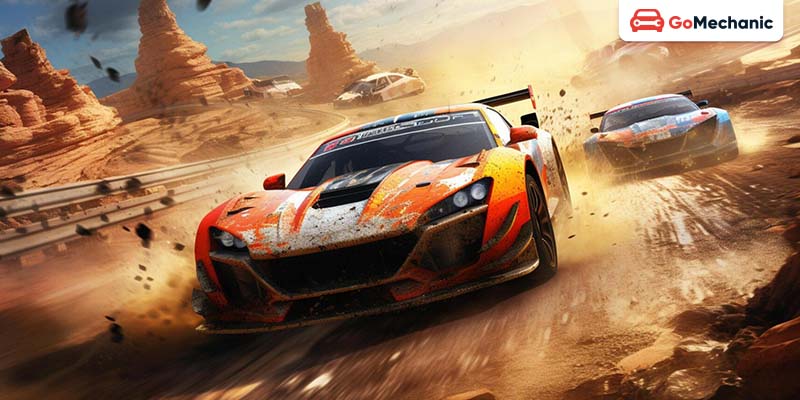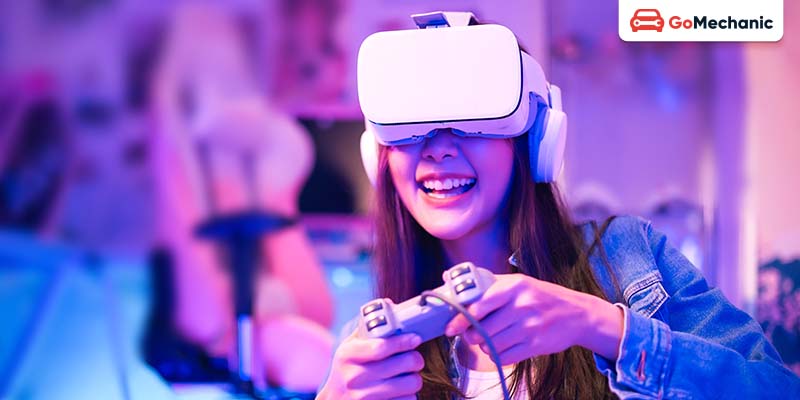The symbiotic relationship between video games and car culture has transformed the way enthusiasts engage with automobiles. Games like Gran Turismo and Need for Speed have not only revolutionised virtual racing but have also cultivated a global community of passionate automotive aficionados. This brief overview will explore the profound impact of video games on car culture, from shaping preferences to fostering camaraderie among enthusiasts.
Introduction
Video games and car culture are closely intertwined, significantly influencing each other. Video games replicate and innovate the driving experience, providing a safe platform to enjoy and explore cars. This interaction serves as both entertainment and a medium for cultural and technological transmission, shaping how younger generations perceive and engage with car culture.
Historical Evolution
The historical evolution of cars in video games reflects significant technological advancements and changing player expectations. Here’s a concise breakdown with subtopics and bullet points:
Early Representations
- Atari’s “Gran Trak 10” (1974): Featured basic car and track designs with a focus on steering and speed control. The simplicity was due to the limited technology of the time.
- Graphical Simplicity: Early games were restricted by their graphical capabilities, offering basic visuals and gameplay.
Technological Advancements and Realism
- Introduction of 3D Graphics (1990s): Games like “Virtua Racing” and “Ridge Racer” brought more realistic car models and environments.
- Hardware Accelerators: The advent of graphics cards enabled games such as “Gran Turismo” (1997) to achieve near-photorealistic visuals and complex driving physics.
Diversification of Genres
- Sub-genres Development: Realism led to the creation of various racing sub-genres including arcade style, simulation, and kart racing.
- Open-World Integration: Games like “Grand Theft Auto” featured significant car usage, integrating driving with broader gameplay narratives.
- Car Customization: Titles like “Need for Speed” popularised in-game car customization, reflecting and influencing real-world car tuning cultures.
Virtual Car Customization
Virtual car customization in video games has played a significant role in promoting and shaping real-life car customization trends. These games offer players a digital playground to experiment with various modifications, which has led to a crossover between virtual designs and real-world car culture.
Role in Promoting Car Customization
- Accessibility: Video games offer a risk-free space for enthusiasts to experiment with car customization, fostering exploration without real-world limitations.
- Democratisation: These games make car modification accessible to a wider audience by providing easy-to-use tools and options, regardless of expertise or financial resources.
- Exploration: Gamers can freely try different customization options, sparking creativity in both aesthetic and performance modifications.
- Inspiration: Video games showcase diverse custom-built vehicles, inspiring enthusiasts and encouraging them to translate virtual designs into real-world projects.
- Community: Online gaming communities facilitate sharing, collaboration, and camaraderie among enthusiasts, further fueling the passion for car customization.
Popular Games with Extensive Customization
- Need for Speed Series: Renowned for its detailed customization options ranging from aesthetics to performance enhancements.
- Forza Horizon Series: Known for its meticulous garage and tuning options that allow for deep customization of both performance and visual aspects.
- Grand Theft Auto V: Features in-depth customization within its in-game auto shops, allowing for both aesthetic and performance modifications.
Influence on Real-Life Trends
- Style Trends: Video games inspire real-world car customization styles, influencing trends seen at car shows and enthusiast meets.
- Education and Accessibility: They introduce a wide audience to the mechanics of car tuning and customization, serving as an educational tool.
- Community Impact: Video games foster online communities that translate into real-world car culture, enhancing the social aspect of car customization.
Racing Simulation Games
The racing simulation genre has experienced significant growth over the years, becoming a major facet of the video game industry. This genre has not only provided entertainment but also influenced driving skills and enthusiast communities, and has seamlessly integrated real-world racing events into its platforms.
Growth of Racing Simulation Genre
- Technological Advances: Enhanced graphics and physics engines have led to more realistic simulations, attracting enthusiasts seeking an authentic driving experience.
- Increased Popularity: The genre’s realism has drawn automotive enthusiasts, expanding its market and popularity.
Influence on Driving Skills and Enthusiast Communities
- Skill Development: Simulators improve real-world driving skills through realistic game physics and precise controls.
- Community Building: Online components foster communities where enthusiasts can compete, learn, and connect.
Integration of Real-World Racing Events into Gaming Platforms
- Official Partnerships: Games like “iRacing” and the “F1” series collaborate with real racing leagues, featuring official tracks and events.
- Virtual Competitions: These games host online races that can qualify players for real-world events or stand as recognized competitions.
- Cross-Promotion: Integrating real-world events promotes interest in both virtual and actual racing, providing a platform for emerging talents.
Marketing and Branding
Video games have become a potent tool for automotive marketing, offering unique opportunities for branding and consumer engagement through strategic partnerships and in-game advertising. This approach not only enhances the visibility of car brands but also influences consumer preferences in the automotive market.
Utilisation of Video Games for Automotive Marketing
- Brand Integration: Car manufacturers integrate their models into games, offering interactive experiences that serve as virtual test drives.
- Launch Platforms: Automakers launch new car models within video games to capitalise on the game’s release excitement and reach.
Partnerships between Game Developers and Car Manufacturers
- Co-Branding Opportunities: These partnerships lead to shared branding benefits, such as special edition cars and exclusive game content.
- Technical Collaboration: Collaborations enhance the realism of in-game cars, improving both game quality and car appeal.
Effectiveness of In-Game Advertising in Shaping Consumer Preferences
- Increased Visibility and Engagement: Brands gain extended exposure to an engaged audience, boosting brand recall.
- Targeted Demographics: Games allow brands to target specific, often younger demographics, fostering early brand loyalty.
- Behavioural Influence: In-game experiences can influence consumer preferences, with players often developing a liking for cars they enjoy driving virtually.
Cultural Impact
The fusion of video games and car culture has significantly impacted cultural perceptions and interactions both online and offline, fostering a unique blend of virtual and real-world automotive enthusiasm.
Representation of Car Culture in Gaming Communities
- Diverse Representations: Games like “Need for Speed” and “Gran Turismo” showcase various aspects of car culture, helping to educate and attract a global audience.
- Community Engagement: Gaming platforms act as social hubs where enthusiasts can discuss both virtual and real-world car trends, enriching the cultural dialogue.
Influence on Perceptions of Automotive Lifestyle
- Aspirational Influence: Video games often present an idealised view of car culture, featuring luxury cars and elite modifications, shaping player aspirations.
- Cultural Shifts: Games make car culture more accessible and appealing, demystifying and expanding its appeal to wider audiences.
Bridging the Gap Between Virtual and Real-World Car Enthusiasts
- Events and Meetups: Overlapping video game tournaments and real-world car events help merge virtual and actual car communities.
- Shared Knowledge and Skills: Skills from games like “iRacing” are transferable to real driving, encouraging gamers to engage in actual racing.
- Technological Exchange: Innovations in gaming influence real-world automotive applications and vice versa, enhancing both fields.
Community Engagement
Online multiplayer platforms significantly enhance the engagement and expansion of car culture communities by offering spaces for social interaction, competition, and knowledge exchange.
Role of Online Multiplayer Platforms
- Social Interaction and Connectivity: These platforms provide a space where enthusiasts globally can connect, share, and engage in ongoing dialogues, strengthening community bonds.
- Real-Time Collaboration and Competition: Multiplayer features enable live races and customization challenges that add excitement and closely mimic real-world automotive events.
Events, Tournaments, and Forums
- Organised Competitions: Regularly hosted tournaments range from casual gatherings to structured leagues, often featuring prizes and mirroring traditional motorsport events.
- Dedicated Forums and Social Media: Central hubs for discussions, advice, and showcasing achievements, these forums are crucial for community growth.
- Special Events: Events that coincide with real-world automotive happenings enhance the hybrid experience between virtual and real car cultures.
Exchange of Knowledge and Experiences
- Skill Development: Experienced gamers share insights on gaming strategies and real-life driving techniques, aiding skill enhancement for newer players.
- Technical Knowledge: In-depth discussions about car mechanics and customization, informed by game simulations, help deepen understanding of vehicle dynamics.
- Cultural Exchange: Diverse global perspectives brought by players enrich the community’s appreciation and understanding of various car cultures.
Challenges and Controversies
Video games featuring cars often face scrutiny regarding their potential impact on player behaviour, cultural perceptions, and legal issues.
Criticisms of Video Games for Promoting Reckless Driving Behaviour
- Perception of Risk: Critics argue that car games may desensitise players to the dangers of reckless driving by rewarding aggressive manoeuvres.
- Influence on Young Drivers: There is concern that younger players might imitate risky driving behaviours seen in games, ignoring the real-world consequences.
Debate over the Impact of Violent or Aggressive Gaming Content on Car Culture
- Aggressive Behaviour: Ongoing debates question whether violent or aggressive game content leads to real-life aggressive driving, with mixed research findings.
- Cultural Influence: Some games may portray car culture as rebellious or lawless, which could negatively influence public perceptions and cultural appreciation of automotive activities.
Regulatory Concerns Regarding the Depiction of Real-World Vehicles in Games
- Licensing and Copyright: Games need a licence to accurately depict branded vehicles, and copyright issues can arise if a vehicle is shown in a potentially damaging manner.
- Regulatory Compliance: Developers must navigate advertising and promotional laws to avoid legal repercussions from misusing brand logos or vehicle designs.
Future Trends
The evolving relationship between video games and car culture is set to deepen, driven by technological advancements and new user experiences. Here’s a concise look at the future trends:
Integration of VR and AR Technologies
- Enhanced Realism: VR and AR will bring more lifelike driving simulations, improving both gameplay and educational driving tools.
- Interactive Showrooms: These technologies will enable car manufacturers to create virtual showrooms, allowing customers to explore and customise cars remotely.
Potential for Immersive Virtual Car Ownership Experiences
- Virtual Ownership: There could be a rise in owning exclusive virtual cars that can be traded within gaming communities, featuring unique designs and limited editions.
- Gamification of Ownership: Real-world car ownership might integrate gaming elements, linking car performance with digital rewards and competitions.
- Cross-Platform Integration: The integration between real-world driving data and video games could become seamless, affecting game settings and offering personalised challenges.
Societal and Technological Impacts
- Educational Tools: Video games could become valuable educational resources, teaching driving techniques and mechanical skills through advanced simulations.
- Cultural Shifts: Younger generations might view car ownership more in terms of access and virtual experiences rather than possessing a physical vehicle.
Conclusion
In summary, the synergy between video games and car culture has significantly transformed both realms, enhancing engagement and shaping perceptions. Advancements in VR and AR continue to deepen this interaction, providing immersive experiences that influence consumer behaviours and foster a global community of enthusiasts. Looking ahead, this evolving relationship promises to bring further innovations that will enrich both the automotive and gaming industries, redefining how we learn about, interact with, and experience cars.







